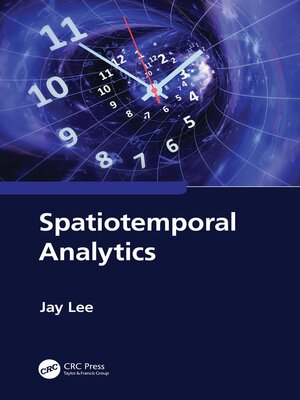
Sign up to save your library
With an OverDrive account, you can save your favorite libraries for at-a-glance information about availability. Find out more about OverDrive accounts.
Find this title in Libby, the library reading app by OverDrive.



Search for a digital library with this title
Title found at these libraries:
| Library Name | Distance |
|---|---|
| Loading... |
This book introduces readers to spatiotemporal analytics that are extended from spatial statistics. Spatiotemporal analytics help analysts to quantitatively recognize and evaluate the spatial patterns and their temporal trends of a set of geographic events or objects. Spatiotemporal analyses are very important in geography, environmental sciences, economy, and many other domains. Spatiotemporal Analytics explains in very simple terms the concepts of spatiotemporal data and statistics, theories, and methods used. Each chapter introduces a case study as an example application for an in-depth learning process. The software used and the codes provided enable readers not only to learn statistics but also to use them effectively in their projects.
Undergraduate and graduate students who use Geographic Information Systems or study Geographical Information Science will find this book useful. The subject matter is also pertinent to an array of disciplines such as agriculture, anthropology, archaeology, architecture, biology, business administration and management, civic engineering, criminal justice, epidemiology, geography, geology, marketing, political science, and public health.







